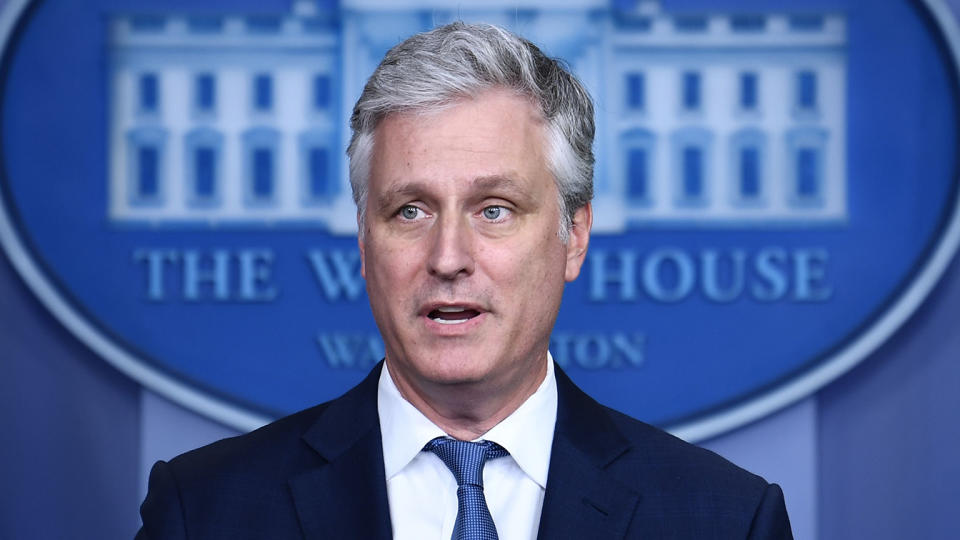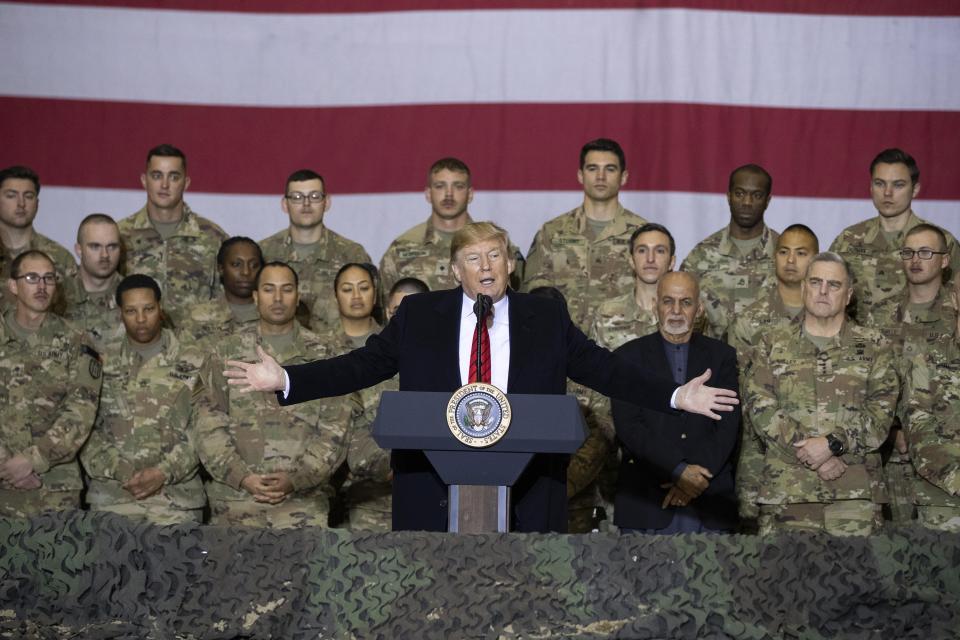Trump's national security adviser pushes back at top general, says troops won't be home by Christmas
President Trump’s national security adviser on Friday repeated his claim that the United States would cut its troop strength in Afghanistan to 2,500 by early next year, rebutting comments from the nation’s top military officer that this represented “speculation.”
In webcast comments to the Aspen Institute, Robert O’Brien added that Trump’s recent tweet about bringing all U.S. troops home from the 19-year-old conflict by Christmas reflected a “desire,” not an actual plan. O’Brien’s remarks are the latest in a series of seemingly contradictory statements about Afghanistan made by senior Trump administration officials during the past few weeks.
O’Brien’s comments Friday were not the first time he has said the United States would draw down its forces in Afghanistan to 2,500 by January. He first did so on Oct. 7, in a speech in Las Vegas. Asked about those remarks during an NPR interview Sunday, Army Gen. Mark Milley, the chairman of the Joint Chiefs of Staff, responded dismissively.
“Robert O’Brien or anyone else can speculate as they see fit,” Milley told NPR. “I’m not going to engage in speculation.”
But O’Brien reiterated his claim Friday and, without naming the general, took a barely veiled swipe at Milley. “We’re going to be under 5,000 troops within the next month or so, and in the early part of next year we’re going to be down to 2,500 troops,” he said. “It’s been suggested by some that that’s speculation. I can guarantee you that’s the plan of the president of the United States.”

Hours after O’Brien’s Oct. 7 speech, Trump had seemed to undercut his national security adviser by tweeting that “We should have the small remaining number of our BRAVE Men and Women serving in Afghanistan home by Christmas!”
Trump’s tweet created the impression that the administration’s senior figures were not on the same page regarding Afghanistan policy. But O’Brien said Friday that in his tweet Trump was merely expressing “the same desire” that every president has to end wars as soon as possible. “All presidents, all GIs, want the troops home by Christmas,” O’Brien said.
A spokesperson for Milley had no comment on O’Brien’s remarks and referred a reporter back to the chairman’s NPR interview. A spokesperson for the White House had no comment.
The United States reduced its forces to 8,600 this summer as part of a peace deal it signed with the Taliban in February. But before the United States has to make any further cuts, the deal requires the Taliban to end all ties with al-Qaida and ensure that Afghanistan cannot be used as a haven from which to threaten the United States and its allies.
Milley referred to these requirements in his NPR interview. “It’s a conditions-based plan,” he said. “We’re continuing to monitor those conditions.”
As recently as Sept. 22, Ambassador Zalmay Khalilzad, the chief U.S. negotiator with the Taliban, told Congress that the Taliban had not yet met the requirements laid out in the peace deal. But in his remarks Friday, O’Brien made no mention of these conditions, leaving unclear whether they still figured in the Trump administration’s thinking as it plans a withdrawal from the country.

“The president has set a timeline for troop withdrawal,” O’Brien said. The only “conditions” to which the national security adviser referred in his Friday remarks were any that might bring troops home ahead of the schedule he outlined, not those in the peace deal that might keep them in Afghanistan.
“If the conditions permit it, we’d love to get people out earlier, and I think that’s the desire that the president was expressing,” O’Brien said.
O’Brien even held out the possibility that U.S. forces might work together on counterterrorism operations with the Taliban against Islamic State Khorasan (ISIS-K), the local branch of the Islamic State group, a remarkable statement from a senior official of a country whose forces have waged an almost two-decade-long counterinsurgency and counterterrorism campaign against the Taliban.
“We’ve had indications from our adversaries in the Taliban that they’d like to see [counterterrorism] cooperation in Afghanistan,” he said. “I don’t think they like fighting ISIS-K any more than we do, so I think there’s some opportunities there.”
_____
Read more from Yahoo News:


